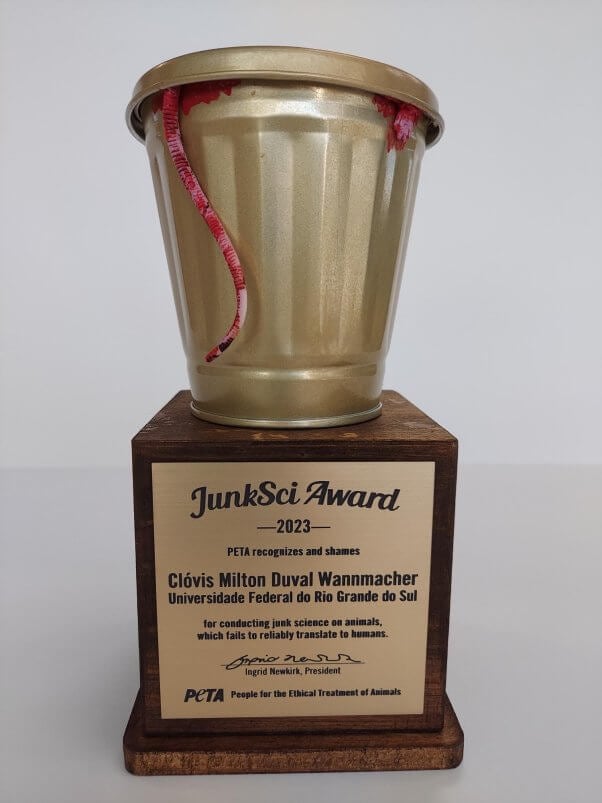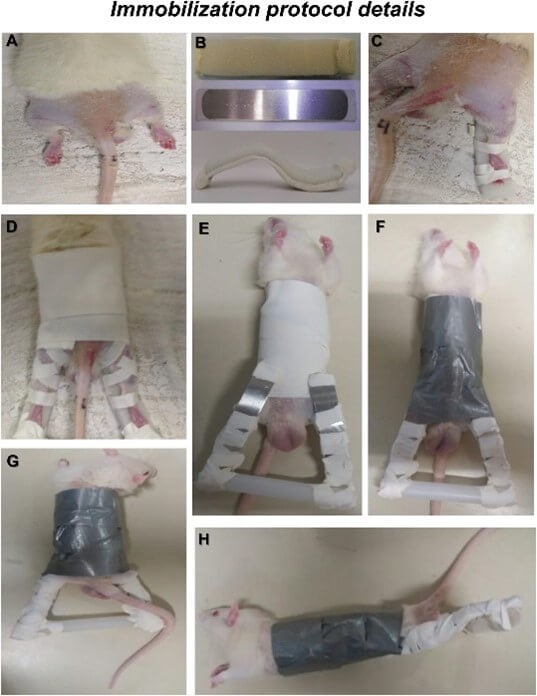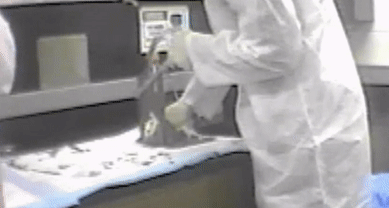PETA’s First ‘JunkSci’ Award Recipient Beheaded Rats in a Guillotine
PETA’s first-ever JunkSci Award is heading to Universidade Federal do Rio Grande do Sul (UFRGS) in Porto Alegre, Brazil, recognizing the school with a dubious distinction for conducting a particularly ridiculous, unscientific, and blatantly cruel experiment on animals.
Humans and other animals have drastic biological differences, making animals unfit for advancing human biomedical research. PETA’s JunkSci Award recognizes UFRGS for littering the scientific community with an experiment so profoundly wasteful and utterly devoid of any contribution to human health that it isn’t even worthy of a participation ribbon at a middle school science fair.

To encourage the school to clean up its act, PETA is sending it our JunkSci trophy, which depicts a gilded garbage can, signaling that its rat torture test should be tossed out like the trash it is.
Futility Takes the Crown
Here’s what the UFRGS experimenters did to deserve this award:
First, they duct-taped rats to a device that stretched their legs apart to the fullest extent and prevented them from moving their torso, hips, legs, and feet—effectively paralyzing them from the chest down. The animals were left like this for two weeks, forcing their muscles to deteriorate.

Throughout this stressful and painful ordeal, experimenters repeatedly force-fed the rats glutamine and other amino acids. Once the experimenters were satisfied, they killed the rats by severing their heads in a guillotine.

You read that right, a guillotine—an abhorrently cruel medieval execution device on par with the experiment itself. The experiment was designed to investigate whether amino acid supplements can prevent muscle loss. Translation: Rats were tortured and killed so the company that paid the school to do this could find another way to sell you supplements for something that the body naturally produces.
JunkSci Heavyweight Champ
This fiasco was funded by Ajinomoto Co. Inc., the world’s largest manufacturer of monosodium glutamate (MSG) and a company that’s no stranger to garbage science. Ajinomoto has tormented thousands of animals in pointless and deadly experiments since the 1950s.

The company has conducted or funded tests in which experimenters cut open dogs’ stomachs, starved and killed rabbits, force-fed cows, and electroshocked mice and rats, among other horrors.
This senseless cruelty is part of an effort to make dubious human health claims about food products and market them to consumers. But the tests aren’t required by law, and due to the drastic physiological differences between species, they also have no relevance to human health.
Support Good Science
Superior, human-relevant research methods are readily available and can provide more accurate results without harming sensitive animals.
Please take action and urge Ajinomoto to join other major food and beverage companies by banning all tests on animals:

